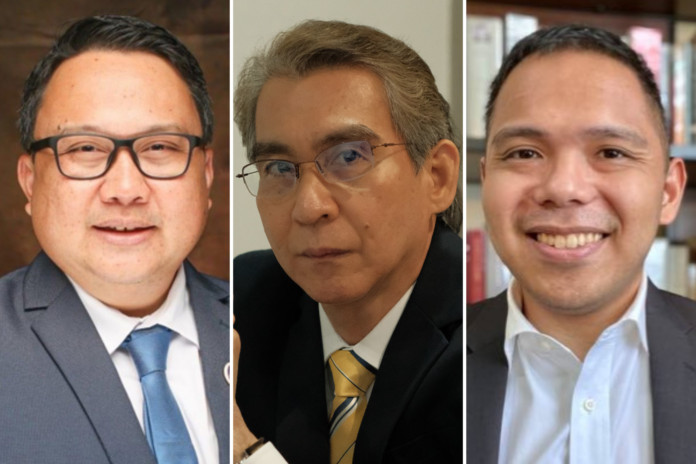Manila Standard sought the views of several legal luminaries on the legal issues surrounding the impeachment of Vice President Sara Duterte.
In separate interviews, lawyers Burt Estrada, Paolo Tamase, and Felix Desiderio, Jr. said the Senate must begin the trial.
Estrada, former national president of the Integrated Bar of the Philippines (IBP), admitted there is a delay contrary to the 1987 Constitution, such that the “trial should already proceed.”
He believes the impeachment proceedings can cross over from the 19th Congress to the 20th Congress as it is a continuing body, especially when it comes to nonlegislative functions.
According to the lawyer, this issue can be avoided if the senators amend their rules to accommodate a speedy and continuous daily trial to have the trial end before June 30.
“I also subscribe to the position that as a court, like the judicial courts, the impeachment court is the same court despite the change in the composition of the justices or the presiding judge,” Estrada said.
He noted that the Supreme Court (SC) can settle the legal questions “if there is grave abuse of discretion in accordance with the Court’s expanded power of judicial review.”
“I’m not prepared to say if it constitutes grave abuse, but it certainly appears that they are abusing their discretion and using technicalities to defeat the ultimate purpose of protecting the people by ferreting out the truth about impeachable offenses committed by our highest public servants,” Estrada said.
Additionally, he described the controversial resolution as a “mere scrap of paper,” noting that the “people deserve a trial to know the truth.”
Meanwhile, University of the Philippines (UP) assistant professor Paolo Tamase echoed the earlier position of his colleagues’ open letter, noting “impeachment is a special constitutional procedure.”
“[It is] tried by the Senate pursuant to a special Article XI (Accountability) function, and is therefore not bound by the usual rules that prevent day-to-day business from crossing to another Congress,” Tamase said.
While the SC has the power to resolve constitutional questions, the lawyer cautioned against this remedy as “impeachment is a function assigned to the political branches.”
According to him, a “mature democracy” would let the Senate itself make an informed and intelligent decision about these questions instead of automatically asking the High Court to intervene.
Tamase, who teaches constitutional law, thinks there is a delay that violates the constitutional directive to “forthwith proceed.”
As an accountability mechanism for the highest officials means that impeachment is of a special priority, he explained that “there seems to be no reason for the Senate not to begin proceedings on June 2.”
According to him, the impeachment trial of the late chief justice Renato Corona opened two days after the Articles of Impeachment were transmitted.
For his part, Desiderio, who has been in practice since 1989, emphasized the need to harmonize the Constitutional provisions and SC decisions on the Senate’s characterization as a continuing body.
“To me, although the Senate rules clearly state that the legislative function ends when the regular session adjourns, it must be clarified that such cessation is only to its legislative function. On the other hand, there are several SC decisions where it expressly said that it is a continuing body,” Desiderio said.
He concluded that as an impeachment court, it is not performing a legislative function and it has a mandate to forthwith proceed with the trial, hence it can pass on to the next Congress if they fail to finish by June 30.
Desiderio, whose area of concentration is legal spokespersonship, explained that this action is in compliance with the major legal principles, which include “forthwith” trial, cessation of legislative function, and continuing body character.
He lauded the position of Sen. Francis Tolentino for his analysis of the US and Philippine Constitutions, describing it as “intelligent” and not only a political comment.
Desiderio added that the resolution from the office of Sen. Ronald dela Rosa declaring the de facto dismissal of the impeachment case is already “expected from the biggest Duterte lackey.”
Like Tamase, he believes that while it is ideal to bring the legal question before the SC, it is the Senate that is clothed by the Constitution with the authority over the impeachment, noting it is a “political question.”









